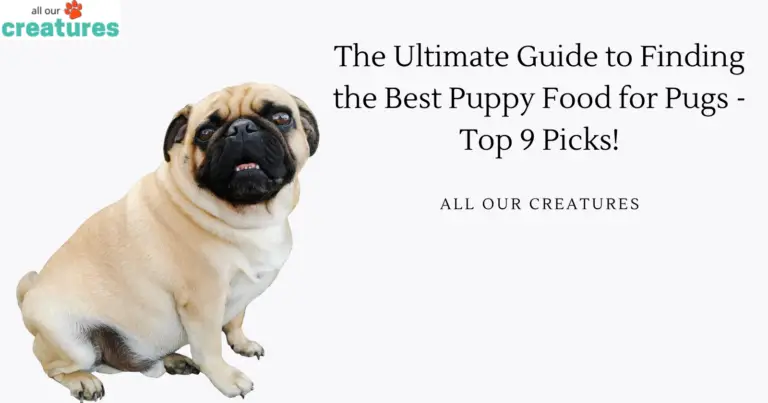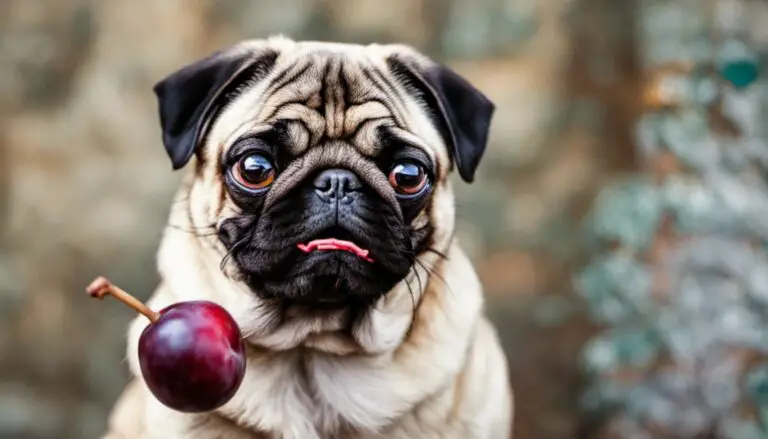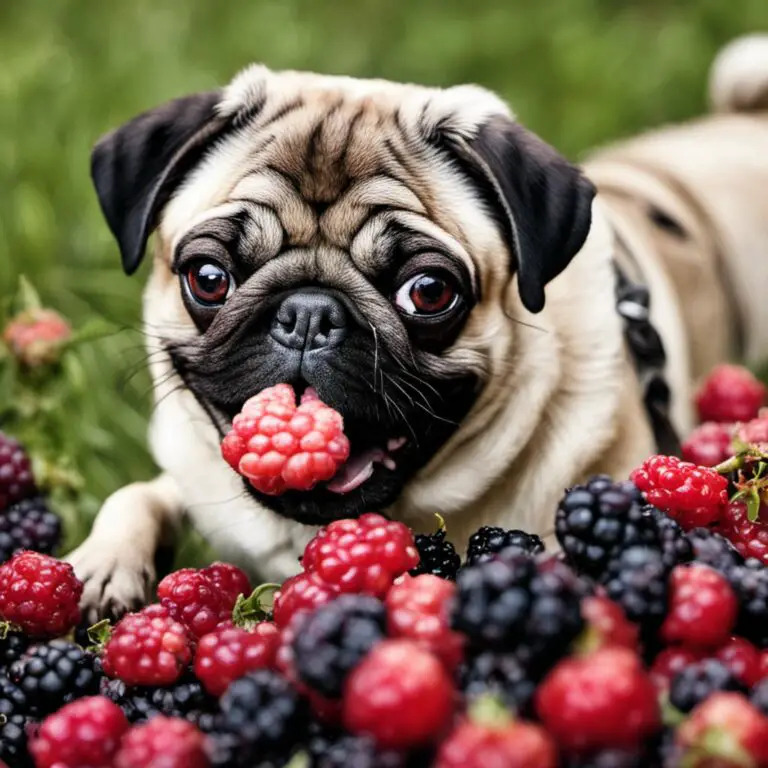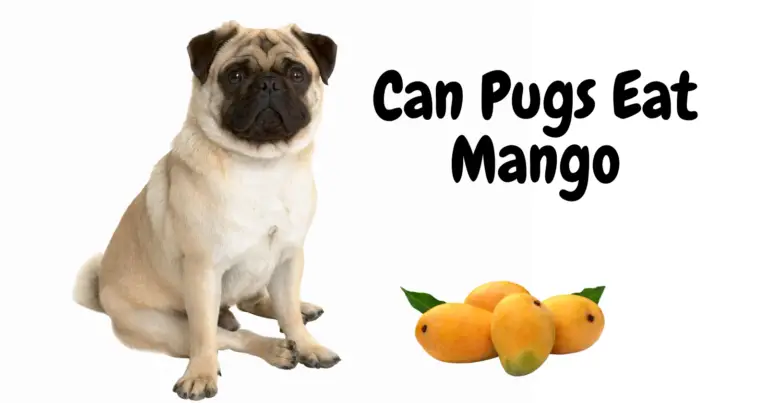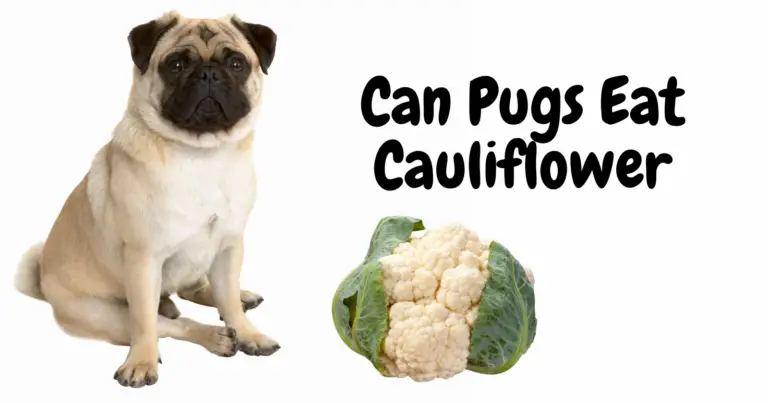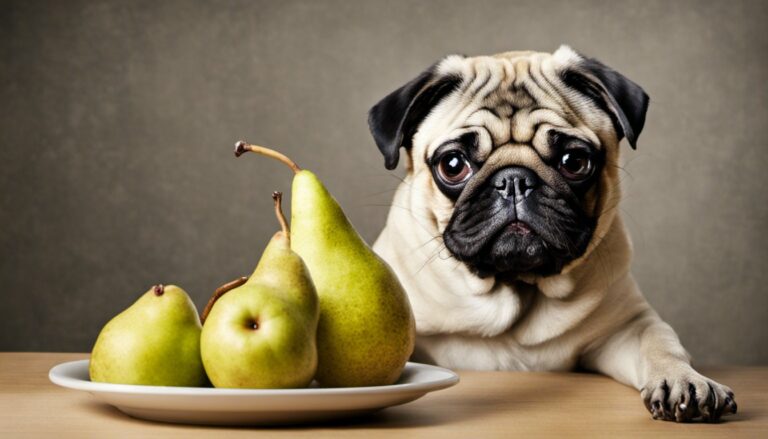Can Pugs Eat Grapes? The Truth Revealed
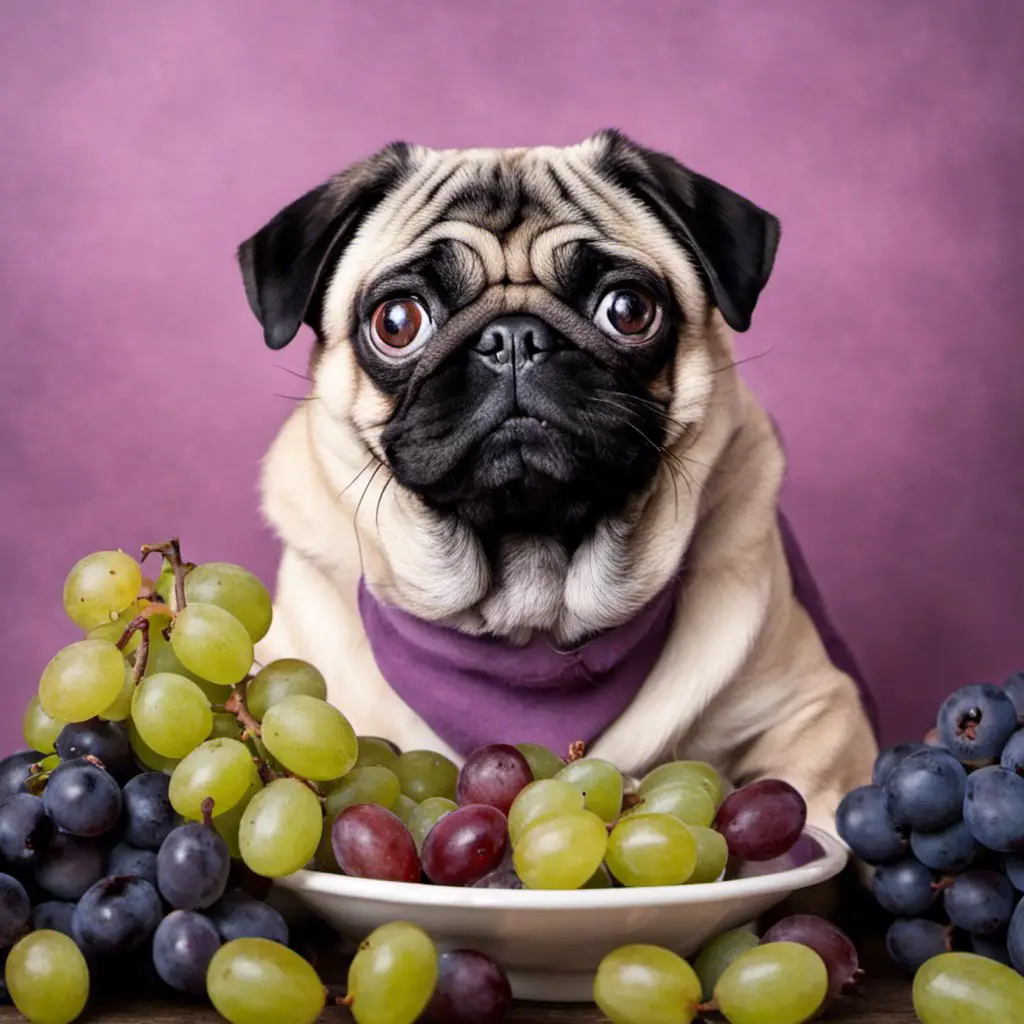
Pugs are a unique and lovable breed of dogs known for their distinctive appearance and friendly nature. As pet owners, knowing what foods are safe for our pugs to consume is important, as their dietary needs can differ from those of other breeds. One common question that arises is, “Can Pugs Eat Grapes?”
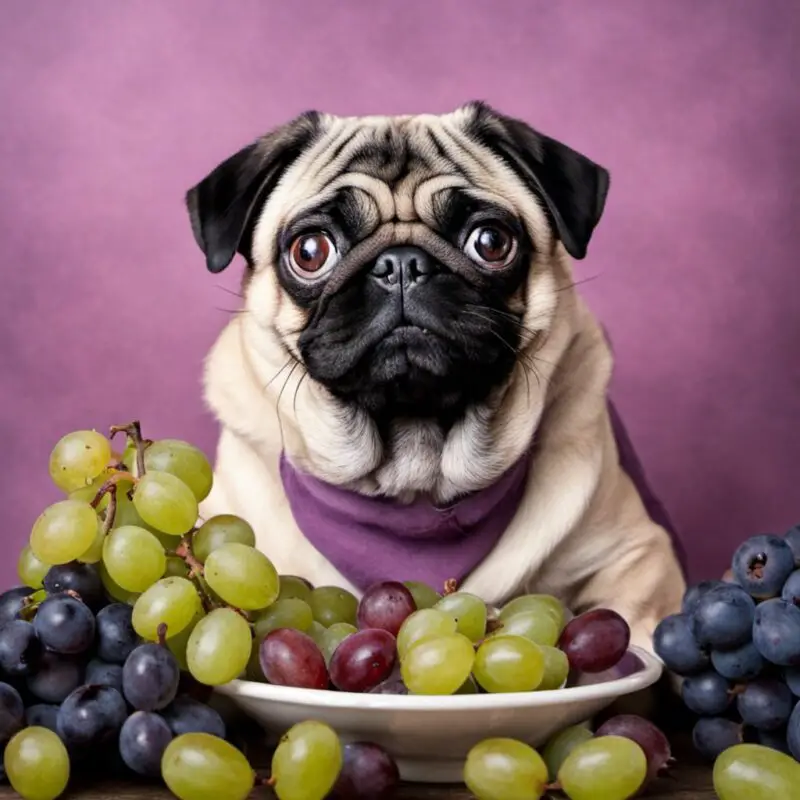
Grapes, along with raisins, are known to be toxic to dogs, and should never be consumed by any dog breed, including pugs. Although the exact cause of grape toxicity in dogs is yet to be fully understood, it is widely known that consumption of grapes can lead to kidney failure, posing a serious risk to your dog’s health.
It is crucial for pet owners to be cautious and avoid feeding their pugs grapes or any grape-based products. With the knowledge that grapes are harmful to pugs, it’s essential to be aware of this risk and take necessary precautions.
If you suspect your pug has consumed grapes, it is important to immediately seek veterinary assistance as early intervention can be critical in preventing severe health issues. In the meantime, familiarize yourself with other dog-safe fruits and vegetables to provide your pug with a healthy and diverse diet.
Contents
Get The Free Food Eating Guide That Keeps My Pug Happy and Playful Even at 13 Years Old
100% Beginner Friendly & Lists Real Foods Your Pug Can Actually Eat!

Table of Contents
Understanding What Pugs Can Eat
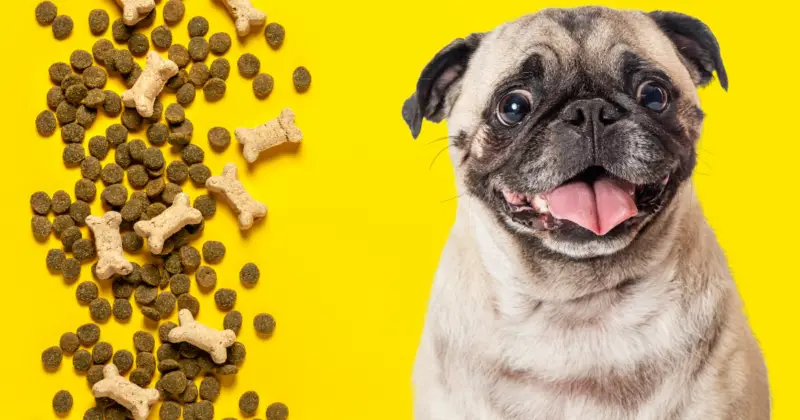
Pugs, like all dogs, require a well-balanced and nutritious diet to maintain their health. Their diet should include a mix of protein, fruits, vegetables, and other essential nutrients. The key is to feed your pug safe and healthy foods that provide the necessary nutrition for their growth and well-being.
Fruits and vegetables can be a great addition to a pug’s diet, offering a variety of vitamins and minerals. Some safe options for your pug include apples, which provide vitamins A and C, as well as fiber. Other fruits, such as blueberries, can offer antioxidants and various vitamins, making them a healthy snack option.
Regarding vegetables, your pug may enjoy carrots, which are a good source of vitamins and fiber. Sweet potatoes can be another option, providing essential nutrients such as vitamin A. However, it’s important to note that not all fruits and vegetables are safe for pugs. For example, grapes should be avoided, as they can cause toxic reactions in dogs.
As for protein sources, pugs can benefit from consuming animal- and plant-based proteins. Lean meats like chicken, turkey, and fish can provide the necessary amino acids for muscle development and maintenance. For plant-based options, you can consider including lentils or quinoa in your pug’s meals.
When planning your pug’s meals, always remember to feed them in moderation. Overfeeding can lead to obesity, which is a common health issue among pugs. Dividing their daily food intake into smaller meals is recommended, ensuring they receive consistent nutrition throughout the day.
While a pug’s diet should primarily consist of dog food formulated for their specific needs, incorporating healthy fruits, vegetables, and proteins can be beneficial for their overall well-being. As a pug owner, knowing which foods are safe and nutritious for your pet is essential, ensuring they lead a happy and healthy life.
The Relationship Between Pugs and Grapes
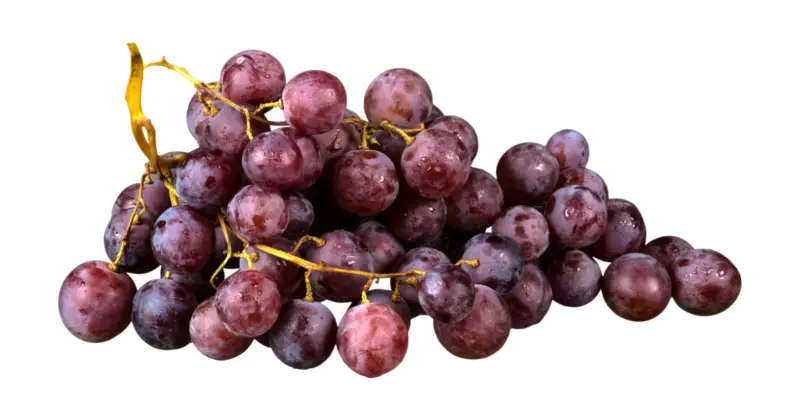
When it comes to feeding pugs, it is important to be aware of the potential dangers of certain foods. One such food is grapes. Regardless of how nutritious grapes might be for humans, they should never be fed to pugs or any other dog breed. The ingestion of even a single grape can have severe health effects on your pug.
Grapes and raisins are considered toxic to pugs, as well as to other dog breeds. The specific substance in grapes that causes toxicity to dogs is still unknown, but it has been established that consumption of grapes can lead to kidney failure in dogs. Though pugs might show an interest in eating grapes, it is crucial not to entertain this behavior as it can cause serious harm.
When a pug ingests grapes, the reaction may vary among individuals. Some pugs might experience immediate health problems, while others may not show any symptoms initially but still suffer from internal damage. The severity of the symptoms can also vary, but it is known that even a small amount of grapes can lead to kidney failure in pugs.
Given the high risk associated with grape consumption in pugs, it is crucial to be vigilant about the food your pug consumes and ensure that grapes are not included, even accidentally. If you suspect your pug has consumed grapes, seeking immediate veterinary assistance is imperative. The faster the issue is addressed by a professional, the higher the chances of preventing potential long-term damage to your pug’s health.
In conclusion, grapes are not suitable for pugs, and exposure to this fruit should always be avoided. By understanding the relationship between pugs and grapes, owners can take the necessary precautions to keep their beloved pets safe from harm.
Possible Signs of Grape Poisoning in Pugs
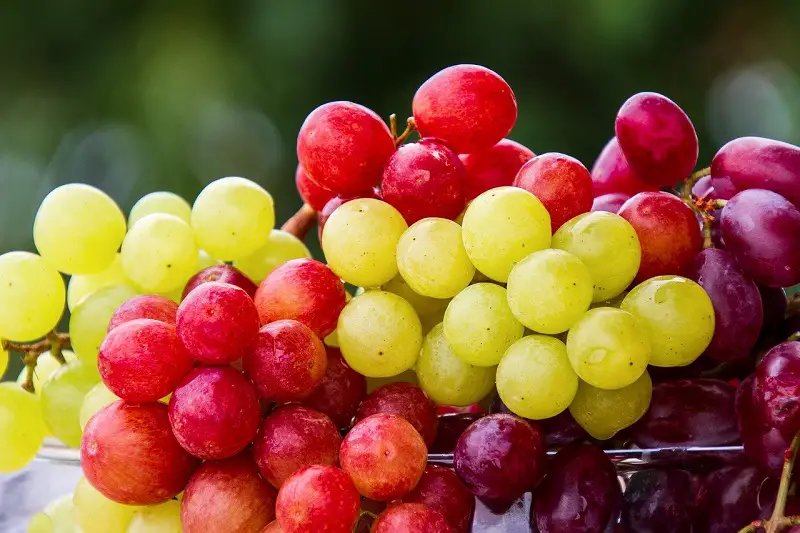
Grape poisoning in pugs can cause a range of symptoms, as they are toxic to dogs. It is essential for pet owners to be aware of these signs to take immediate action in case of ingestion. Here is the information about possible signs of grape poisoning in your pug.
The initial symptoms of grape toxicity may include vomiting and diarrhea, which usually begin about 6-12 hours after ingestion. Dog owners should also watch out for general weakness and loss of appetite. These signs indicate that the pug’s body reacts to the poison in the grapes.
Within 24 to 48 hours after consuming grapes, more severe symptoms related to kidney failure may become apparent. Affected pugs may experience abdominal pain, lethargy, and distress. Dehydration may also occur, accompanied by noticeable thirst and increased water consumption.
As kidney dysfunction progresses, it can lead to a decrease in urine production. Pugs may also display signs such as panting, dry nose, and trouble breathing. These indicators can be especially concerning, as they may hint at fatal kidney failure that can develop within 1-3 days of grape ingestion.
To sum up, pet owners should be vigilant about the potential risk of grape toxicity in their pugs. Recognizing the early signs, such as vomiting, diarrhea, weakness, and appetite loss, is crucial to prevent further complications. In case of any suspicion, contacting a veterinarian immediately is essential to ensure proper care and treatment.
Identifying Foods Harmful to Pugs
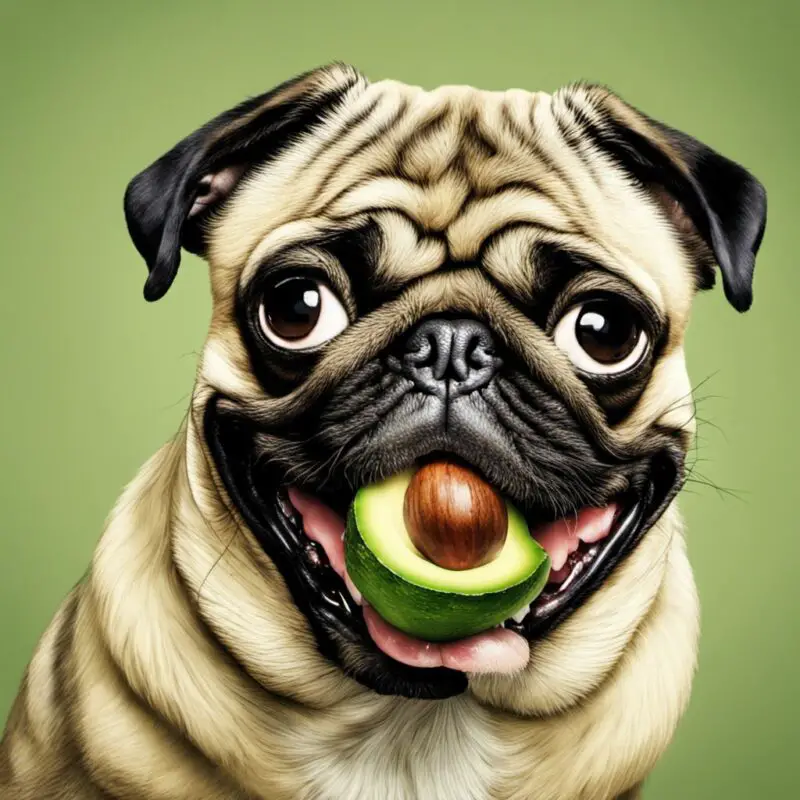
It’s essential to know which foods can be harmful to your pug to ensure their safety and well-being. Some human foods contain toxins or pose a choking hazard, specifically to pugs. Several food items can have adverse effects on pugs, and it is crucial to keep them away from such items.
Grapes are known to be toxic to pugs and most breeds of dogs. Even in small amounts, consuming grapes can lead to kidney failure and be potentially fatal to your pug. Similarly, raisins are also a no-go since they are dried grapes and carry the same toxic risks as fresh grapes.
Onions, garlic, leeks, and chives are all part of the Allium family and can cause hemolytic anemia – a condition where the dog’s red blood cells break down – if consumed in large quantities. Exposure to these foods should be avoided.
Avocado contains persin, a toxin that is harmful to pugs when ingested. The toxic substance is present in the avocado plant’s fruit, pit, leaves, and skin. Ingesting avocado can result in vomiting and diarrhea for pugs.
Cherries are also an unsafe fruit option. The cherry pits stems, and leaves contain cyanide, which is poisonous to dogs and can lead to symptoms such as difficulty in breathing, dilated pupils, and even death.
Caffeine in beverages like coffee or tea, and foods like chocolate, should be avoided as it contains theobromine, a toxic substance for pugs. Ingesting caffeine can result in symptoms like abnormal heartbeats, tremors, seizures, and even death, especially when it comes to consuming dark chocolate.
Beware of offering bones, especially cooked ones, to your pug. Cooked bones are prone to splintering, and these splinters can puncture your pug’s gastrointestinal tract.
Lastly, macadamia nuts should be kept away from pugs, as they can cause symptoms like vomiting, increased body temperature, and even inability to walk.
By being aware of harmful foods and avoiding them, you can ensure your pug’s safety and maintain their overall health.
Can Pugs Eat Grapes? Watch this
Safe Fruits for Pugs
Pugs can enjoy a variety of fruits as occasional treats to supplement their regular diet. When feeding fruits to pugs, ensure they are seedless, and keep the fruit portion sizes small to avoid overfeeding.
Berries like strawberries and blueberries are great options for pugs. Strawberries offer a good source of fiber, vitamin C, and other nutrients while being relatively low in calories. Blueberries, on the other hand, are packed with antioxidants, making them a nice healthy snack. Remember to remove any green leaves and wash the berries thoroughly before serving them to your pug.
Another fruit suitable for pugs is oranges. This citrus fruit provides an excellent source of vitamin C and some dietary fiber. However, when feeding oranges to your pug, it’s essential to remove the seeds and peel them, as they can be difficult for your pet to digest.
Pugs can also enjoy bananas. B bananas are a great energy-boosting snack, rich in potassium, vitamins, and natural sugars. When feeding bananas to your pug, remove the peel and limit the intake to a few small pieces due to their sugar content.
Watermelon is yet another safe fruit option for pugs. With high water content, watermelon is an excellent option to help keep your pug hydrated, especially on hot days. When serving watermelon to a pug, always be sure to remove the seeds and rind, as they can cause digestive issues.
In summary, various fruits, such as berries, oranges, bananas, and watermelon, make suitable snacks for pugs when provided in moderation and properly prepared. Always consult your veterinarian before introducing any new food to your pug’s diet to ensure it’s appropriate for their specific needs.
Considerations Regarding Pugs’ Dietary Needs
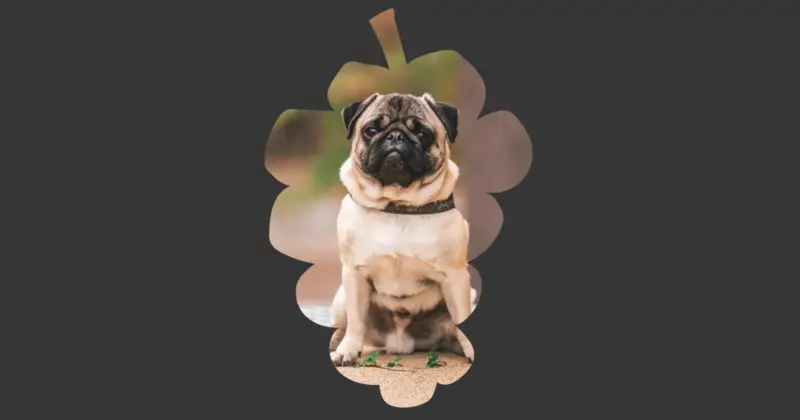
Pugs are a unique breed known for their charming personalities and distinctive appearances. However, they also have specific dietary requirements that must be carefully considered to ensure optimal health. One crucial factor to take into account when it comes to feeding pugs is their age. As pugs grow older, their nutritional needs will change, thus requiring adjustments in the food they consume.
Different breeds may have varying sensitivities and allergies, so it is important to consult a vet before introducing new items to your pug’s diet. A veterinarian can guide you on the proper nutrition and even provide recommendations on the ideal type of food for your pug, considering aspects like weight, level of activity, or any existing health problems.
Quality nutrition is vital for a pug’s overall health. Calories and fat content in their food should be monitored closely, as pugs can be prone to obesity and related health problems such as diabetes. Finding the right balance in their diet will help them maintain a healthy weight, preventing issues like joint stress and breathing difficulties.
Feeding pugs a diet tailored to their breed is essential for addressing their unique needs. The Royal Canin Breed Health Nutrition Pug Dry Dog Food is an example of specialized food catering to the nutritional requirements of pugs aged 10 months and up. Including the right proportions of proteins, fats, and carbohydrates in their diet will considerably improve their overall well-being.
Lastly, it is crucial to avoid feeding pugs certain food items that can be toxic, exacerbate health issues, or cause allergies. For instance, grapes are strictly off-limits, as they can cause kidney failure in this breed. Make sure to educate yourself about the prohibited foods for your furry friend and consult your veterinarian for advice tailored to your pug’s specific needs.
Emergency Measures and Treatment Options
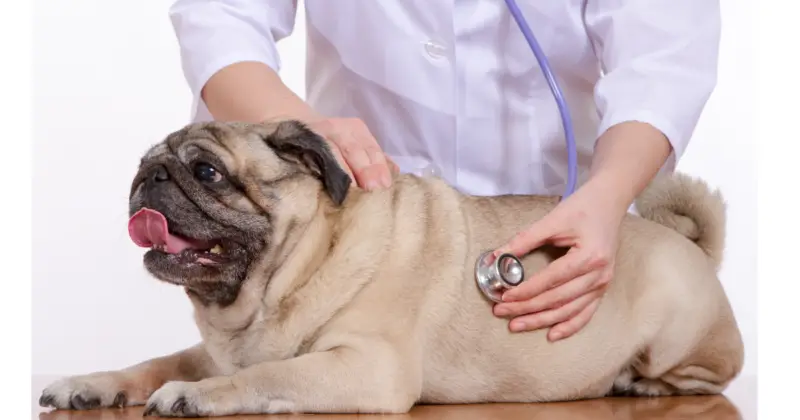
If you discover that your pug has ingested grapes, it is crucial to act quickly, as grapes are toxic to dogs and can cause kidney failure. One of the first steps you should take is to contact your veterinarian or the ASPCA Animal Poison Control Center for guidance on the next steps in managing the situation.
Inducing vomiting is often recommended by veterinarians if the grapes were consumed recently. This helps in expelling the grapes before they can cause any further harm. Remember that you should only attempt to induce vomiting under the direction of a veterinarian, as doing it improperly could cause further harm to your pug.
In some cases, your vet may also provide activated charcoal to administer to your pug. This is a treatment used to prevent intestinal absorption of the toxins from the grapes. Activated charcoal binds with the toxic compounds and helps them pass through your pug’s system without being absorbed by their body.
It is important to follow up with a visit to your veterinarian as soon as possible. Your vet may recommend additional treatment and close monitoring to ensure your pug’s kidneys are functioning properly. In severe cases, your pug may require hospitalization and intravenous fluids to help support their kidney function while they recover from the effects of the grape ingestion.
In summary, if your pug has ingested grapes, act quickly by contacting a veterinarian or the ASPCA Animal Poison Control Center, and follow their guidelines for inducing vomiting, administering activated charcoal, and providing any additional necessary treatment. Remember that prompt action can make a significant difference in reducing the risk to your pug’s health.
Final Thoughts on Feeding Pugs
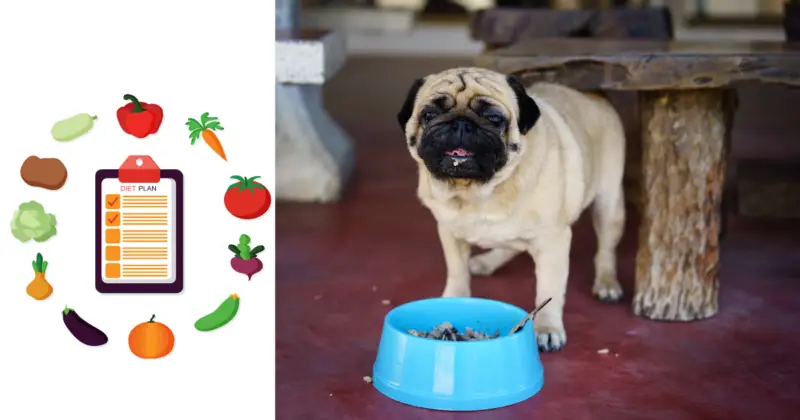
Feeding your pug a healthy and balanced diet is essential for their overall well-being and longevity. Understanding which foods are safe for consumption is crucial, as pugs have specific dietary needs and can be sensitive to certain ingredients.
Grapes, unfortunately, are not a safe option for pugs. They should never be fed grapes or raisins, as these can cause toxic reactions and lead to serious health issues, such as kidney failure. Instead, focus on providing your pug with safe and nutritious foods, such as high-quality dog food tailored toward their specific breed, age, and size.
While pugs may enjoy snacking on various fruits and veggies, it is important to research each food item’s safety before incorporating it into their diet. Make sure to select dog-friendly treats and snacks that are low in calories, as pugs can be prone to obesity. Royal Canin Breed Health Nutrition Pug Dry Dog Food is a popular choice, as it is specifically formulated for the nutritional needs of purebred pugs aged 10 months and up.
Monitoring your pug’s daily food intake and nutritional quality can help maintain a healthy weight and contribute to their overall health. Establishing a consistent feeding routine and portion size is essential. For example, pug puppies may require 0.25 to 0.75 cups of food containing 50 to 300 kcal of nutrients per day, depending on their age, weight, size, gender, and activity level. As your pug matures, consult with your veterinarian to adjust their meal plan accordingly.
In conclusion, the key to maintaining good health and safety for your pug is to provide them with a nutritious and balanced diet, avoiding harmful foods such as grapes. Always consult with your veterinarian if you are unsure about a specific food item, and closely monitor your pug’s eating habits to ensure they receive the appropriate nutrients and calories to thrive.
Frequently Asked Questions: Can Pugs Eat Grapes

Can pugs consume grape seeds?
No, pugs should not consume grape seeds or any part of the grape. Grapes are toxic to dogs and can cause severe health issues such as kidney failure. It is important to keep grapes and grape products away from your pug.
What are the risks if a dog ingests grapes?
The ingestion of grapes poses serious health risks for dogs, including acute kidney failure, vomiting, diarrhea, and even death. It is crucial to seek veterinary help immediately if your dog has consumed grapes.
What fruits are safe for dogs to eat?
Not all fruits are harmful to dogs. Some safe options include blackberries, apples (without seeds), bananas, blueberries, and watermelon. These fruits provide essential vitamins and minerals that can keep your dog healthy. Remember to feed fruits in moderation and only as treats.
How to help a dog that has eaten grapes?
If your dog has ingested grapes, it is crucial to seek veterinary attention immediately. Your veterinarian may induce vomiting or administer activated charcoal to reduce the absorption of toxins. The dog might also require intravenous fluids and supportive care to help recover from the toxicity.
Do grape types affect canine health differently?
There is no significant difference in toxicity between grape types, including red or green grapes. All types of grapes can be dangerous to dogs, and they should avoid them.
What are some Signs of grape poisoning in dogs?
Some common symptoms of grape poisoning in dogs include lethargy, vomiting, diarrhea, increased drinking, and urination. Other symptoms may include abdominal pain, dehydration, bad breath, and neurological signs such as head tilts and seizures. If you notice any of these signs after your dog has been exposed to grapes, it is imperative to contact your veterinarian right away.

